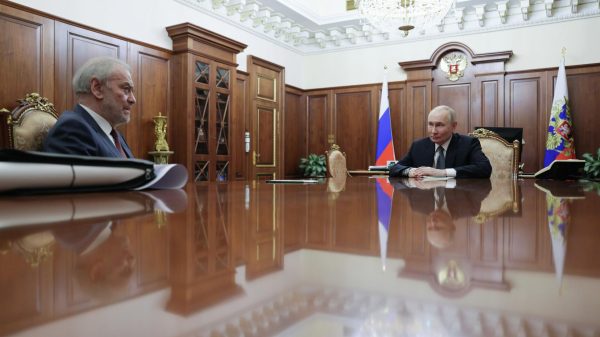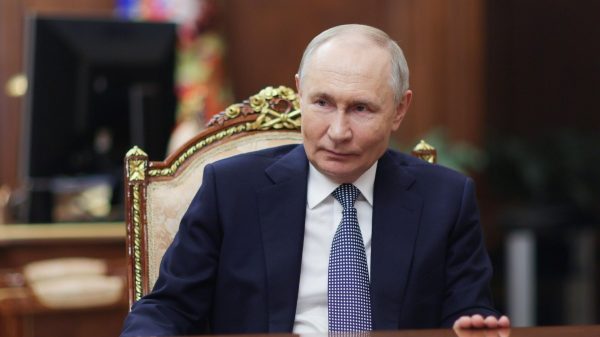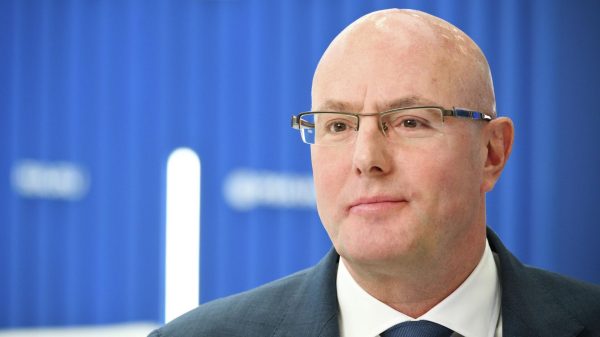 GDP growth stalled in April, three weeks before the UK goes to the polls. Photo: Leon Neil/Getty Images Europe
GDP growth stalled in April, three weeks before the UK goes to the polls. Photo: Leon Neil/Getty Images Europe
When the chief economist of the Office for National Statistics (ONS) described UK economic growth at the start of the year as “gangster-like”, Rishi Sunak wasted no time in capitalizing on it.
In an interview BBC Radio 4's Today program in May, the prime minister pointed to it as evidence his economic plan was working.
«The facts are the facts,» Sunak said. «I think he used the term 'gangsters,' so I'll leave it at that.»
At the time, figures showed the economy had grown 0.6% in the first quarter of the year.
p>
But just a month after the big data, the picture is very different. New gross domestic product (GDP) data released Wednesday showed the economy has stabilized.
Severe slumps in construction and manufacturing contributed to UK GDP growth of 0% in April.
This is just a snapshot and quarterly growth figures may be stronger.
But it is a blow to Sunak, who has used the momentum in the economy as one of the reasons he called a snap election.
April GDP data is among the last economic data to be published before then. vote, except for next week's inflation data.
«In terms of impact on the actual election results, that's pretty much it: the public got pretty much everything they wanted,» says Paul Dales, the UK's chief economist . at Capital Economics.
It's not just the Tories who will be looking at the April GDP figures with regret. The Labor Party has promised to make Britain the fastest-growing economy in the G7 — a promise that now appears difficult to deliver.
The data underscores the difficult economic situation inherited by whoever wins the July 4 election.< /p>
Britain will still be struggling with all the same economic problems immediately after the vote. Productivity growth is in decline, investment is the lowest in the G7, economic inactivity has reached a new 13-year high, and many parts of the economy are struggling under the weight of high interest rates.
The UK may not be in recession, but the outlook is subdued.
“We don’t think the 0.6% growth seen in the first quarter, will never happen again. Coming soon,” says Chris Hare, senior economist at HSBC.
Lower inflation and lower interest rates, which are expected to start falling soon, should provide a small boost to the economy in the second half of the year.
“Whoever the next government is may actually be in a position where the economy isn't going through gangster shocks, but at least it has a bit of a tailwind,” says Dales.
But there will be no structural changes. change in economic prospects.
Dales says: “We're talking about a sort of cyclical recovery as the temporary impact on the economy fades. When this happens, the economy will be able to grow at what can be called the medium-term growth rate. The Bank of England thinks it's 1 percent. We think it's about 1.5%.”
This rate of growth is not “normal” for Britain. In the years leading up to the financial crisis, annual GDP growth was around 2%. In the 1980s, this figure was about 2.5%.
Growth of 1-1.5% would be a return to the very low rates recorded before the pandemic.
If Labor is to achieve its «largest sustainable growth in the G7», it will face a major uphill battle.< /p>
The International Monetary Fund (IMF) forecasts that UK real GDP will grow by 8.2% between 2024 and 2028.
This could stimulate construction and investment and would be «relatively free» for the government, Dales says.
However, April GDP data casts doubt on this. strategy. Construction volumes fell 1.4% and private residential construction fell 4.4%.
The construction industry is on its knees as companies face high interest rates and construction cost inflation. The Construction Products Association also warned that the sector does not have the staff needed to build Labour's promised 300,000 homes a year.
When Sunak seized on the phrase «gangsters» last month, the ONS was quick to distance itself. himself from the comment. The agency issued a statement clarifying that the word was «certainly not intended to be a commentary on the general state of the economy.»
Gangsters is not a phrase that can be used to describe the UK economy at the moment. «, says Dales.



















































Свежие комментарии